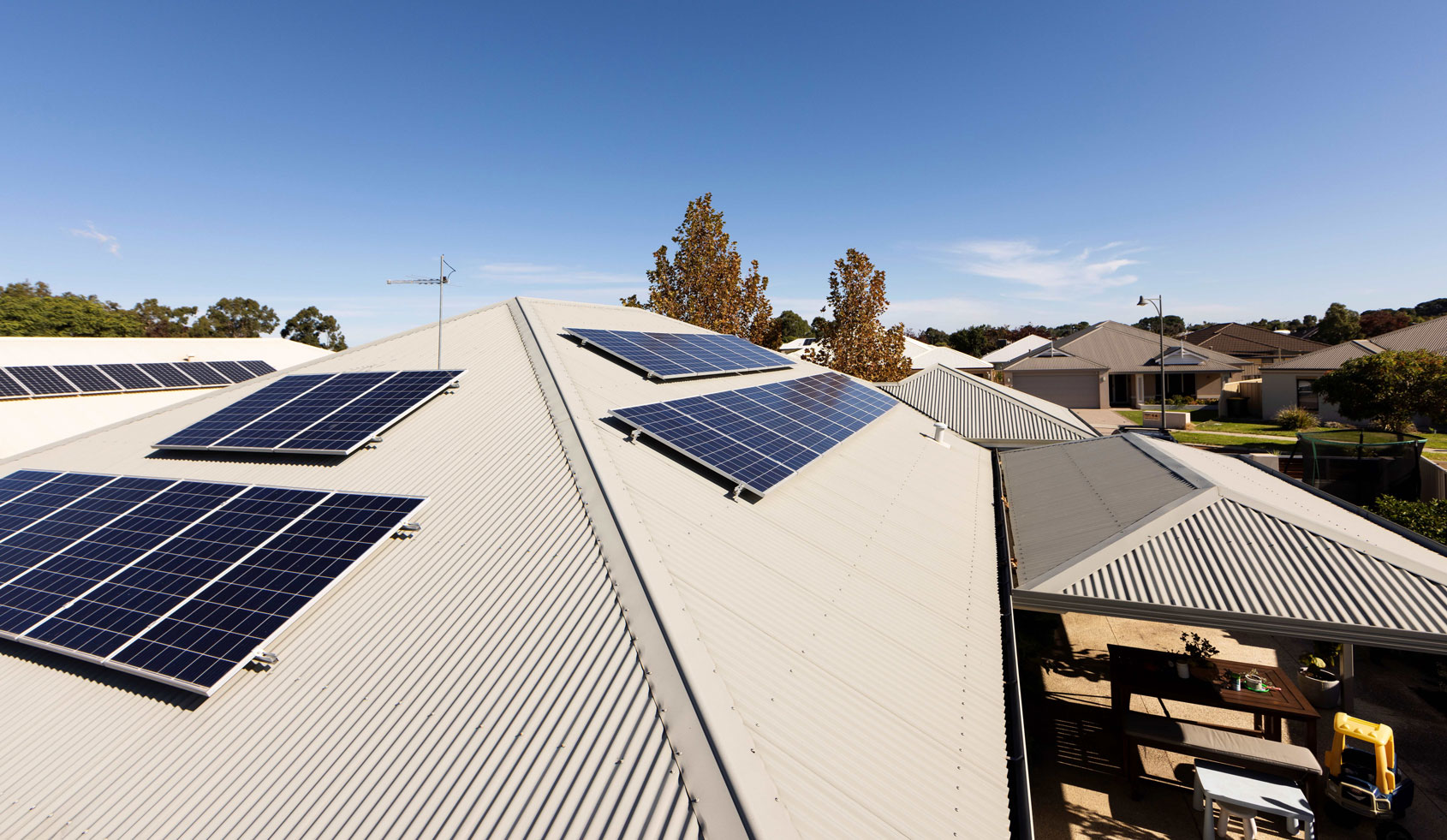
Project Jupiter
Accelerating the integration of rooftop solar and batteries into WA’s electricity system through virtual power plants.
Accelerating customer participation in virtual power plants
Project Jupiter is accelerating the integration of rooftop solar and batteries into WA’s electricity system through virtual power plants (VPPs).
VPPs enable households, businesses and community energy assets to generate, store and share power when it’s needed most.
By enabling large-scale coordination of distributed energy resources (DER), the project will help unlock greater value for customers and support a more reliable, secure energy system.
Project Jupiter will deliver the technical, market and regulatory functionality needed to enable this across the South West Interconnected System (SWIS).
As the project progresses, new solar and battery systems connected to the network will become visible, compliant, and ready to participate in a VPP, providing opportunities for customers to earn more value from their household energy assets. The goal is to enable aggregated customer owned DER to participate in the energy market by providing capacity and network support services.
Why now
Western Australia leads the country in solar uptake, with rooftop systems installed on around 40% of homes and more than 30,000 new systems installed each year. Installation of home battery systems is also on the rise.
While this growth is helping decarbonise the grid, it’s also creating challenges, particularly in managing energy flows and keeping the system stable during times of high solar generation and low energy demand.
Project Jupiter helps address these challenges by enabling coordinated, secure integration of distributed energy resources (DER), ensuring customers, the grid and the energy system all benefit.
Our role
Western Power is leading the coordination of Project Jupiter. We are responsible for building some of the technology solutions to enable VPPs, which include:
- Designing a Distribution System Operator (DSO) platform to set the guard rails for safe, scalable DER participation.
- Developing Dynamic Connections and Operating Envelopes (DOEs) to give residential, commercial and industrial customers flexibility to export energy based on real-time network conditions.
- Embedding Network Support Services (NSS) as a way to use DER to manage local network constraints and defer or avoid the need for infrastructure upgrades to meet peak electricity demand.
- Raising awareness of VPPs, supporting customers, industry and government to understand and engage with VPP opportunities across the SWIS.
Where to get more information
Detailed technical reports and key findings from the project will be published on ARENA’s website.
FAQs
Distributed Energy Resources are small-scale energy technologies that generate or store electricity close to where it’s used. This includes rooftop solar panels, home batteries, electric vehicles, community batteries, air-conditioners and pool pumps. While Project Jupiter is currently focused on solar and battery systems, it will lay the foundation to include other types of DER in virtual power plants in the future.
A VPP connects and coordinates household solar panels, batteries and other energy systems so they operate like a traditional power station. This allows energy to be shared with the grid when it’s needed, supporting system stability and creating opportunities for customers to earn additional value from their assets.
By combining, or aggregating, commercial and residential energy assets, a VPP can provide capacity and network support services to the grid. The specific ways customers will be able to participate, and how value will be created, will be explored and developed through Project Jupiter.
Project Jupiter is building the functionality needed – technical solutions, customer-focused products and services, and supporting policy and regulatory settings – so that all new rooftop solar panels and batteries connected to WA’s main electricity network will have the opportunity to participate in a virtual power plant.
This means customer energy assets can actively support the grid by providing capacity and network support services, while enabling customers to earn more value from their energy assets.
Project Jupiter is not directly funding the installation of community or grid-scale batteries. However, it is developing the capability for existing and future residential, community and larger batteries to work together through VPPs, unlocking more value and improving overall system performance.
Project Jupiter is a key initiative under the WA Government’s Distributed Energy Resources (DER) Roadmap, which supports the continued uptake of DER to strengthen the electricity system and maintain secure, reliable power.
It builds on the success of the Project Symphony pilot, which proved that virtual power plants are feasible in WA’s energy system. Project Jupiter takes this from concept to reality, developing the functionality needed to enable wide-scale participation in VPPs across the network.
Residential customers will be able to join a VPP through new products offered by their energy retailer or aggregator, once available. Education and engagement programs will help customers understand how VPPs work and how they can benefit.
Larger energy users will be engaged directly or through third-party aggregators to participate in services like capacity, energy and network support. Their involvement will be key to meeting grid needs and realising the full potential of DER.